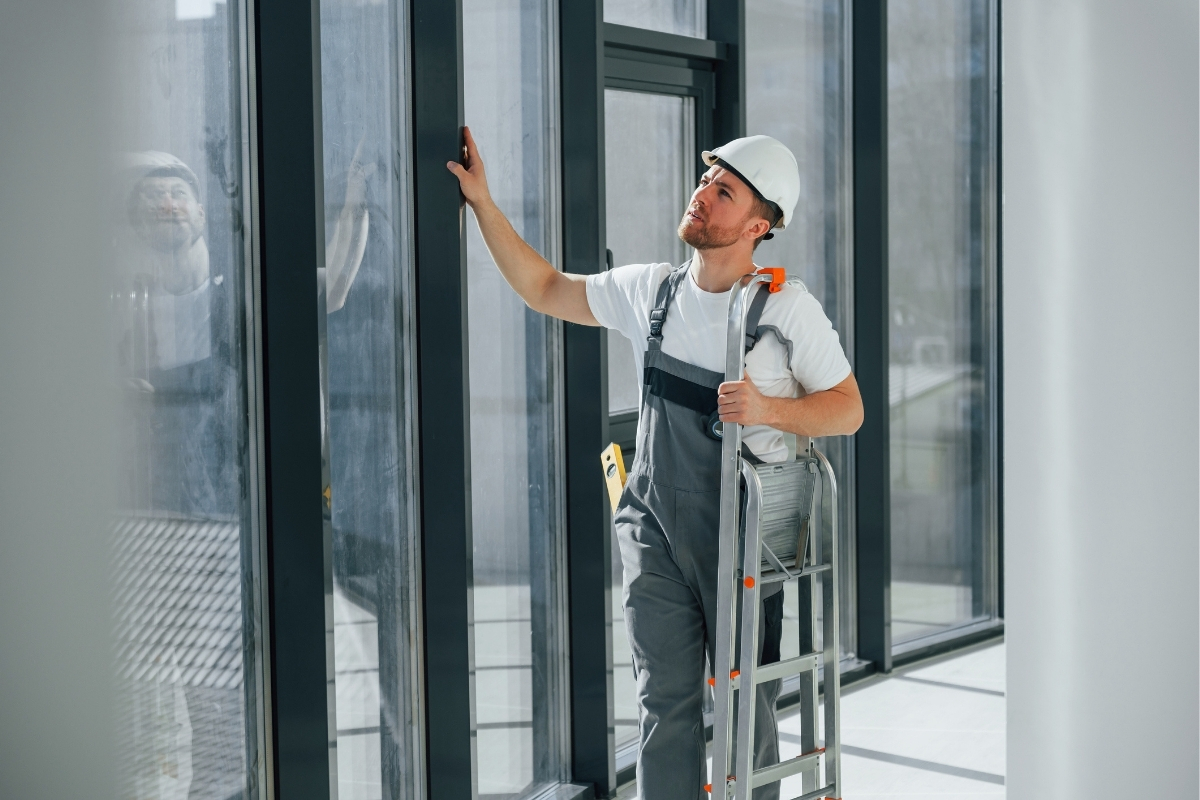When was the last time you considered the role your commercial doors play in safety and efficiency? Often overlooked, these entryways welcome clients and staff while securing your property. With consistent door inspection tips, you can prevent disruptions and guarantee smooth operation. Imagine avoiding a jammed door or a faulty lock during peak hours. This complete checklist equips you with everything needed to maintain commercial doors effectively.
Importance of Regular Door Inspections for Commercial Properties
Regular inspections support safety, compliance, and efficiency. By following door inspection tips, you ensure comfort, prevent costly issues, and maintain your brand image.
Safety checks reduce hazards like loose hardware or misaligned frames. Security improves when you detect vulnerabilities early. Furthermore, sealed doors preserve energy efficiency and reduce utility costs. Additionally, well-kept doors project professionalism. Preventive checks also stop small problems from growing into major breakdowns. For more guidance, explore our resource on frequent door issues.
Exterior Door Inspection Guidelines
When inspecting exterior doors, check frames for rot, corrosion, or damage. Look for gaps that weaken security. Review hinges, locks, and handles for rust or looseness. Weather stripping must be intact to avoid drafts. Also, inspect thresholds to prevent tripping hazards. By applying these door inspection tips, you safeguard efficiency and durability. If problems persist, consider our professional repair services to restore performance.
Interior Door Inspection Procedures
Interior doors also require ongoing checks. Look for scratches, dents, or stains that signal deeper issues. Test panic bars, closers, and hinges. Fire doors need special attention: seals must remain intact, and latches must work correctly. Opening and closing tests confirm smooth motion. By including these door inspection tips, you protect staff and comply with fire safety standards. Learn more about specialized services for your building.
Checking Door Hinges: Tips and Techniques
Hinges bear weight and movement stress. Inspect for rust, loose screws, or sagging. Lubricate with light oil, not heavy grease. For high-use doors, ball-bearing hinges may help. Observe gaps when closed; uneven spacing may show sagging. With these door inspection tips, you extend hinge life and prevent misalignment.
Assessing the Condition of Door Handles and Locks
Handles and locks ensure security. Inspect for looseness, corrosion, or wear. Tighten screws, replace damaged parts, and test keys for smooth action. Access systems need clean keypads and reliable batteries. Apply these door inspection tips to keep access points secure and dependable.
Understanding the Importance of Weather Stripping
Weather stripping keeps out air, water, and pests. Over time, seals compress or crack. Inspect vinyl, rubber, or metal strips for gaps. Replace brittle or loose sections quickly. These door inspection tips maintain comfort and energy efficiency.
Maintenance Tips for Automatic Doors
Automatic doors require careful servicing. Inspect sensors and clean detectors. Review safety edges and photoelectric cells. Keep tracks and rollers clean and lubricated. Check electrical wiring and emergency releases. Record diagnostic codes for reference. With proper door inspection tips, automatic systems remain safe and reliable.
FAQs About Door Inspections
How often should commercial doors be inspected?
Monthly for high-traffic doors, quarterly for less-used ones. Routine checks prevent unexpected failures.
Can I perform door inspections without professional help?
Yes, many basic tasks are manageable. However, complex repairs may require experts.
Why is weather stripping important?
It ensures insulation, energy savings, and prevents water or pest intrusion.
What signs indicate hinge problems?
Squeaking, sagging, or uneven gaps show hinges need adjustment or replacement.
When should I call a professional?
If misalignment, security failures, or repeated malfunctions occur, professional services are best.
Ensuring Longevity and Performance for Your Commercial Doors
Proactive maintenance extends lifespan. Schedule inspections monthly or quarterly, and keep detailed records of repairs. Partnering with technicians uncovers hidden issues and prevents breakdowns. By consistently applying door inspection tips, you ensure lasting reliability. For immediate support, visit our contact page and request expert assistance today.

